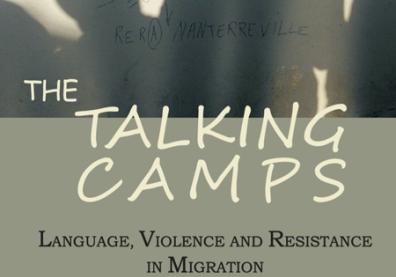The Talking Camps: Language, Violence and Resistance in Migration

Discussion around the book The Talking Camps: Language, Violence and Resistance in Migration (Setu Prakashani, 2024).
This book is the fruit of four years' research by the Liminal team (Linguistic and Intercultural Mediations in a context of International Migrations - ANR, Inalco, 2017-2021) in camps and reception centers for asylum seekers. Surveys were conducted in Pashto, Persian, Arabic(s), Urdu, Tigrinya, French, English, Italian, as close as possible to the actors, in the Paris region, in Calais and on the French-English and French-Italian borders. Using an original methodology and a multidisciplinary approach at the crossroads of anthropology and sociolinguistics, the book studies migralecte, the performative language of camps and borders, to determine the power of language in constrained situations. The Talking Camps offers a new perspective on language, shedding light on what lies at the heart of migration: a political experience of violence and resistance. The migrant reception crisis has shaken Europe since 2015 and remains a controversial issue in the current political scenario. Diving into the linguistic world of exile and asylum will be of interest to researchers in migration and refugee studies, those working in the field, the media and the general public.
With:
Marie Caroline Saglio-Yatzimirsky is an anthropologist and psychologist, University Professor of Social Anthropology at INALCO and member of the Centre d'Etudes en Sciences Sociales sur les Mondes Africains, Américains et Asiatiques (CESSMA). She is director of the Institut Convergences Migrations.
Alexandra Galitzine-Loumpet is an anthropologist, member of CESSMA and researcher at the Institut Convergences Migrations.
Isabelle Leblic is an anthropologist, director of research emeritus at CNRS and member of LACITO (Langues et Civilisations à Tradition Orale /INALCO).